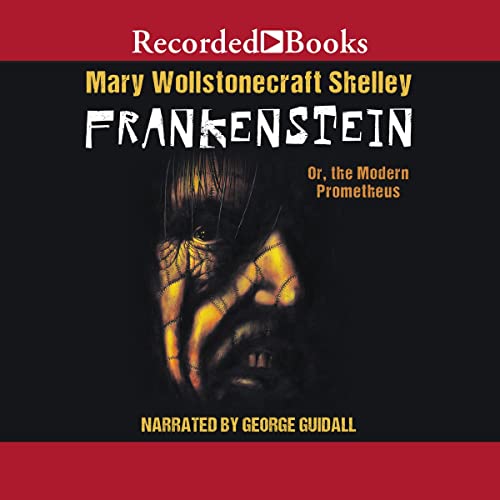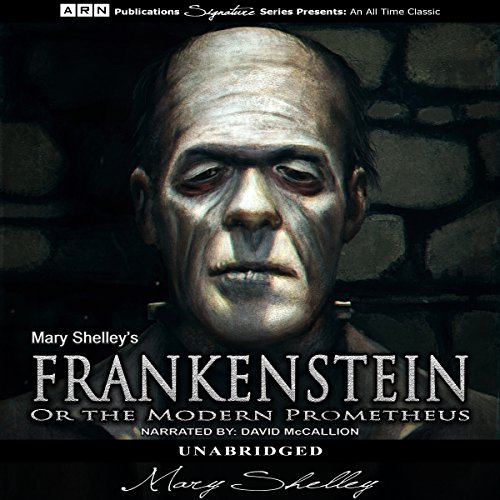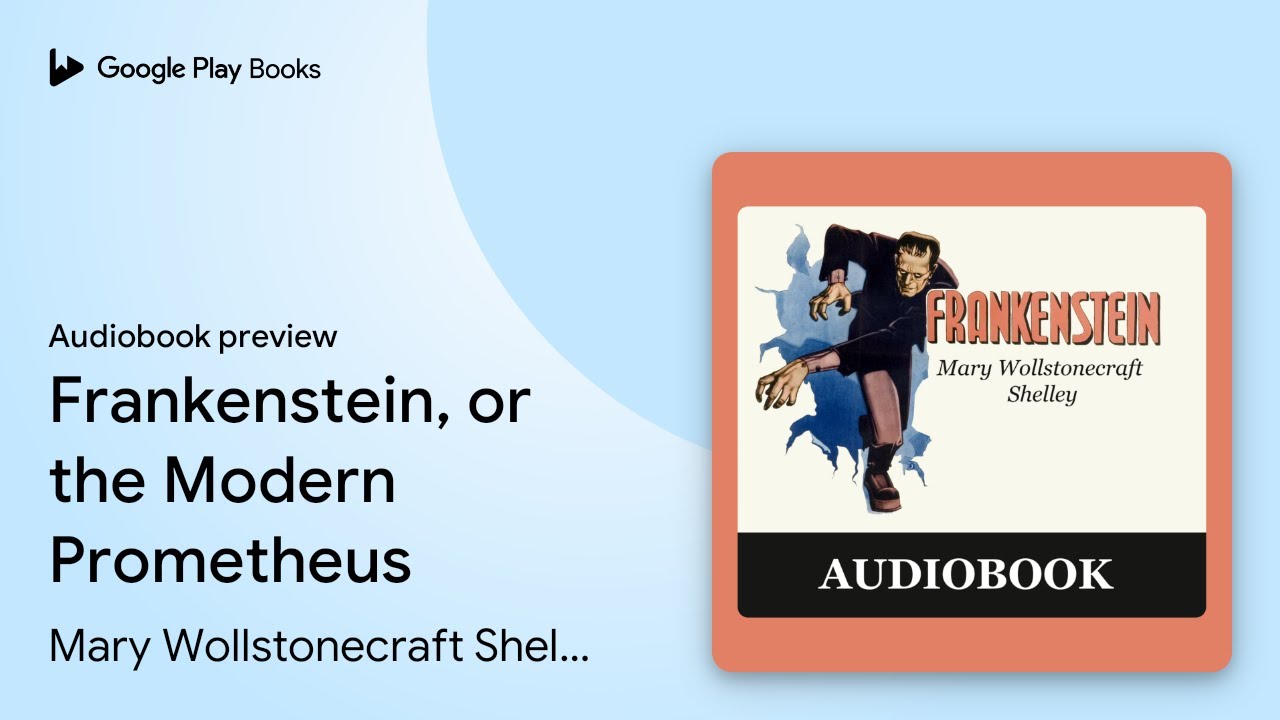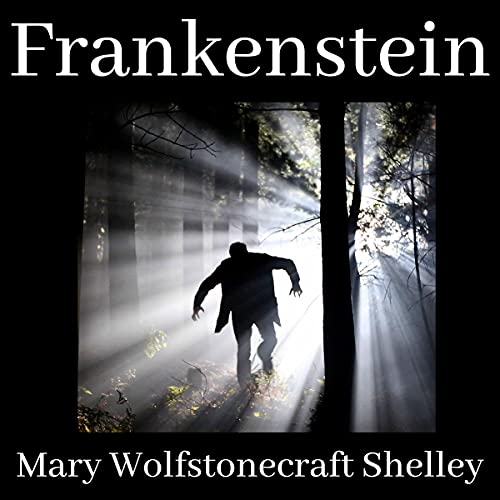Mary Wollstonecraft Shelley’s “Frankenstein” audiobook brings the iconic Gothic novel to life. It explores themes of ambition, creation, and responsibility.
Mary Wollstonecraft Shelley’s “Frankenstein” is a masterpiece of Gothic literature. The audiobook version captivates listeners with its haunting narrative and complex characters. Victor Frankenstein’s ambition leads him to create life, which results in disastrous consequences. The story delves into themes of scientific exploration, ethical boundaries, and the human condition.
Listening to the audiobook offers a unique experience, allowing the listener to immerse in the chilling atmosphere. “Frankenstein” remains a timeless classic, reflecting on the dangers of unchecked ambition and the quest for knowledge. This audiobook is perfect for those who enjoy classic literature with a dark twist.

The Birth Of A Monster
Mary Wollstonecraft Shelley’s Frankenstein remains a cornerstone of gothic literature. The story of Victor Frankenstein and his creation has fascinated readers for generations. The tale’s power lies in its exploration of ambition, science, and the human condition. Listening to the Frankenstein audiobook brings this classic to life in a new way.
Early Inspirations
Mary Shelley drew inspiration from many sources. Her parents, William Godwin and Mary Wollstonecraft, were famous writers. They influenced her thoughts on society and human rights.
During a summer visit to Switzerland, Shelley met Lord Byron. They discussed ghost stories and scientific theories. These conversations sparked the idea for Frankenstein.
One night, she had a vivid dream. In it, she saw a scientist creating life. This dream became the foundation of her novel.
Creating The Unthinkable
Shelley began writing Frankenstein at just 18 years old. She faced many challenges. Writing in the early 19th century was difficult for women. Yet, she persevered and completed the novel.
Victor Frankenstein, the main character, embodies human ambition. He pushes the boundaries of science. He creates life from dead matter, which was unthinkable at the time.
The audiobook captures the essence of Shelley’s writing. The narrator’s voice brings the characters to life. Listening to it is a unique experience.
| Key Influences | Impact |
|---|---|
| Parents’ Writings | Shaped her thoughts on society |
| Conversations with Lord Byron | Introduced scientific ideas |
| Vivid Dream | Foundation for the novel |
Mary Shelley’s Frankenstein audiobook offers an immersive experience. It allows listeners to explore the birth of a monster through her vivid storytelling.
Voices From The Grave
Mary Wollstonecraft Shelley’s Frankenstein audiobook brings the story to life. With voices from the grave, listeners experience each character’s depth. The narration captures the eerie essence of the novel.
Character Narration
The audiobook features multiple narrators. Each voice represents a different character. This approach enriches the storytelling experience. Victor Frankenstein’s voice sounds tortured and desperate. The creature’s voice is sorrowful and haunting. These distinct voices help listeners differentiate characters easily.
Emotion And Tone
The narrators capture the emotion and tone of each scene. They convey fear, sadness, and anger with their voices. The tone shifts with the storyline, enhancing the mood. For example, Victor’s voice quivers in moments of terror. The creature’s tone is mournful when recounting its loneliness.
| Character | Voice Description | Emotion Conveyed |
|---|---|---|
| Victor Frankenstein | Desperate and tortured | Fear and regret |
| The Creature | Sorrowful and haunting | Loneliness and anger |
The Frankenstein audiobook immerses listeners in Shelley’s dark world. The voices from the grave make the story unforgettable. Each character’s voice adds depth and emotion to the narrative.
Legacy And Adaptations
Mary Wollstonecraft Shelley’s “Frankenstein” has left a lasting impact on literature and culture. Her work continues to inspire countless adaptations and reinterpretations. The story of Frankenstein’s monster has become a cornerstone of the horror genre.
Influence On Horror Genre
Shelley’s Frankenstein laid the foundation for many horror stories. It introduced themes of creation and the dangers of unchecked ambition. Many modern horror tales draw on these themes.
- Gothic elements: Dark settings, eerie atmosphere, and tragic heroes.
- Science fiction: Blending science with supernatural elements.
- Moral dilemmas: Questions about humanity, ethics, and responsibility.
These elements have shaped countless horror novels, films, and series. Shelley’s influence can be seen in works like “Dracula” and “The Strange Case of Dr Jekyll and Mr Hyde”.
Modern Interpretations
Many modern adaptations of Frankenstein exist. Each brings a new perspective to the classic tale.
- Films: Numerous movies have been made, from the classic 1931 film to modern retellings.
- Television: TV shows often reference or adapt Shelley’s story.
- Theater: Stage productions bring the story to life with new interpretations.
- Books: Authors continue to write new versions and sequels.
These adaptations keep the story relevant and engaging for new audiences. They explore different facets of the original tale, adding depth and diversity.
Mary Shelley’s Frankenstein remains a powerful influence. Its legacy continues to grow with each new adaptation.


Conclusion
Experience the timeless tale of “Frankenstein” through Mary Wollstonecraft Shelley’s audiobook. This classic story offers suspense and profound themes. Listening to the audiobook brings the characters and narrative to life. Discover why “Frankenstein” remains a literary masterpiece. Don’t miss the chance to delve into this enduring work of fiction.



